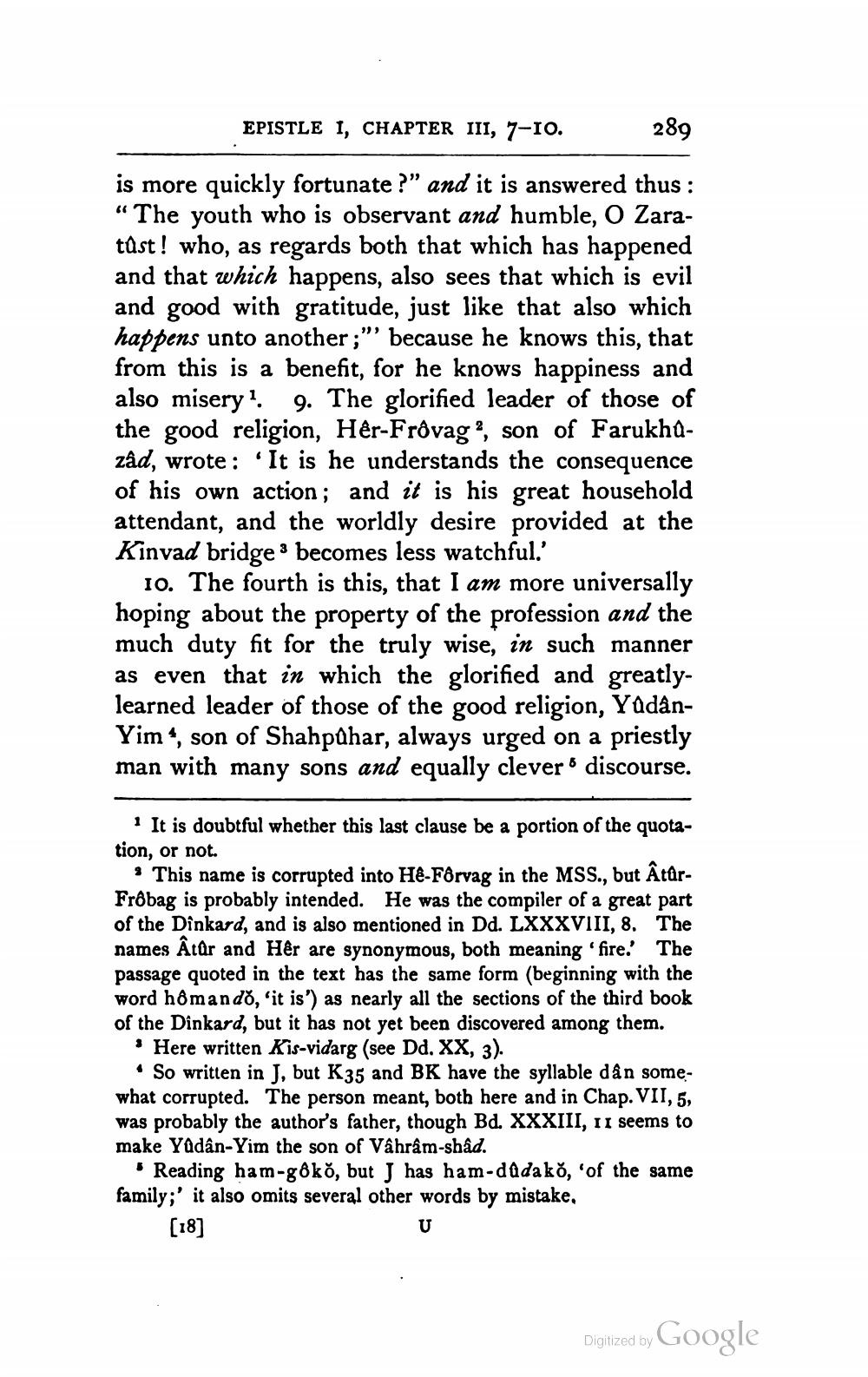________________
EPISTLE 1, CHAPTER 111, 7-10.
289
is more quickly fortunate ?" and it is answered thus : "The youth who is observant and humble, O Zaratūst! who, as regards both that which has happened and that which happens, also sees that which is evil and good with gratitude, just like that also which happens unto another;"' because he knows this, that from this is a benefit, for he knows happiness and also misery? 9. The glorified leader of those of the good religion, Hêr-Frðvag?, son of Farukhdzâd, wrote: 'It is he understands the consequence of his own action; and it is his great household attendant, and the worldly desire provided at the Kinvad bridge becomes less watchful.
10. The fourth is this, that I am more universally hoping about the property of the profession and the much duty fit for the truly wise, in such manner as even that in which the glorified and greatlylearned leader of those of the good religion, YûdânYim , son of Shahpuhar, always urged on a priestly man with many sons and equally clever discourse.
It is doubtful whether this last clause be a portion of the quotation, or not.
* This name is corrupted into H&-Fôrvag in the MSS., but âtûrFrôbag is probably intended. He was the compiler of a great part of the Dinkard, and is also mentioned in Dd. LXXXVIII, 8. The names Ātar and Hêr are synonymous, both meaning 'fire.' The passage quoted in the text has the same form (beginning with the word hômando, 'it is') as nearly all the sections of the third book of the Dinkard, but it has not yet been discovered among them.
• Here written Kis-vidarg (see Dd. XX, 3).
. So written in J, but K35 and BK have the syllable dån somewhat corrupted. The person meant, both here and in Chap. VII, 5, was probably the author's father, though Bd. XXXIII, 11 seems to make Yadân-Yim the son of Vâhrâm-shad.
Reading ham-gôko, but J has ham-dadako, 'of the same family;' it also omits several other words by mistake,
[18]
Digitized by Google




